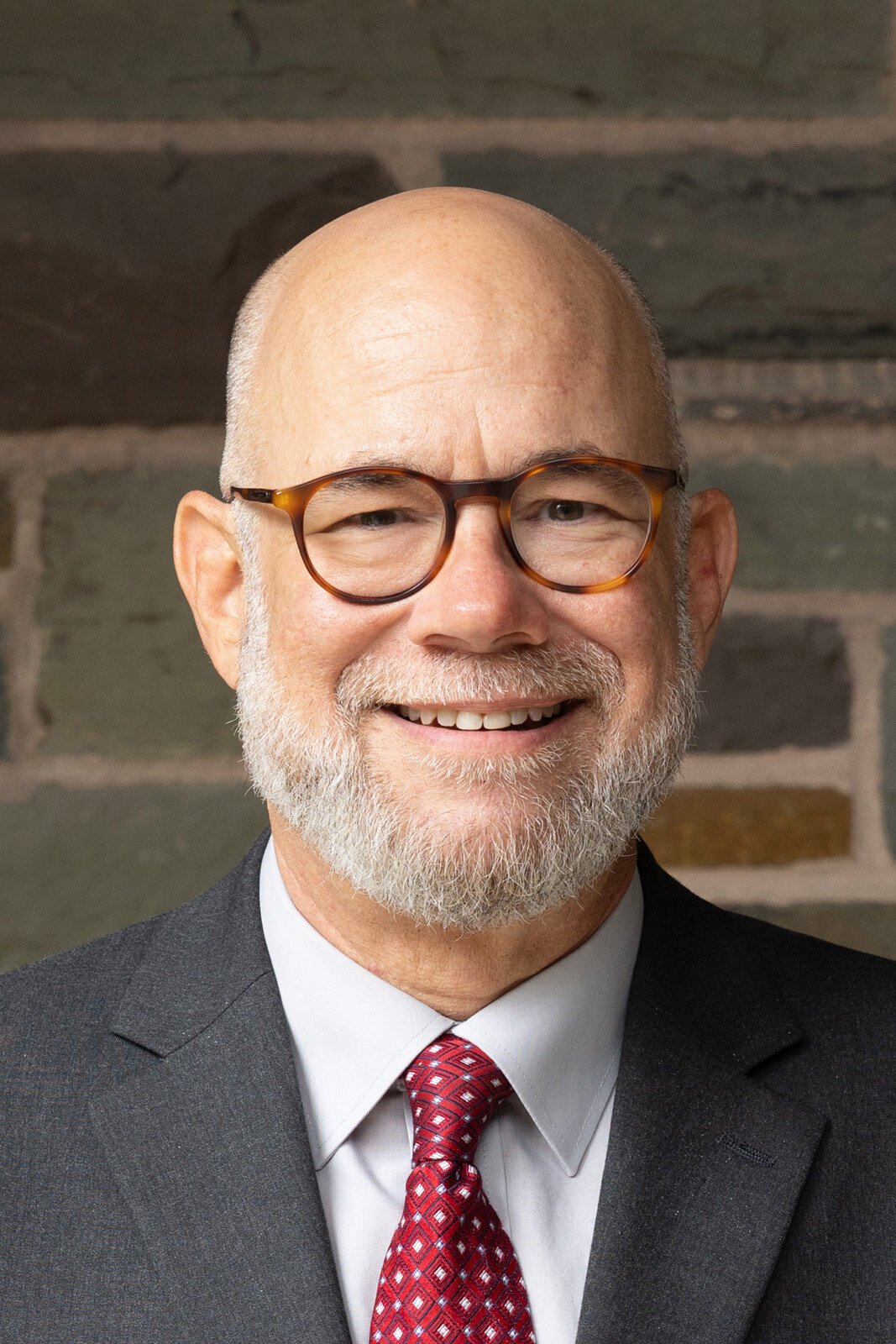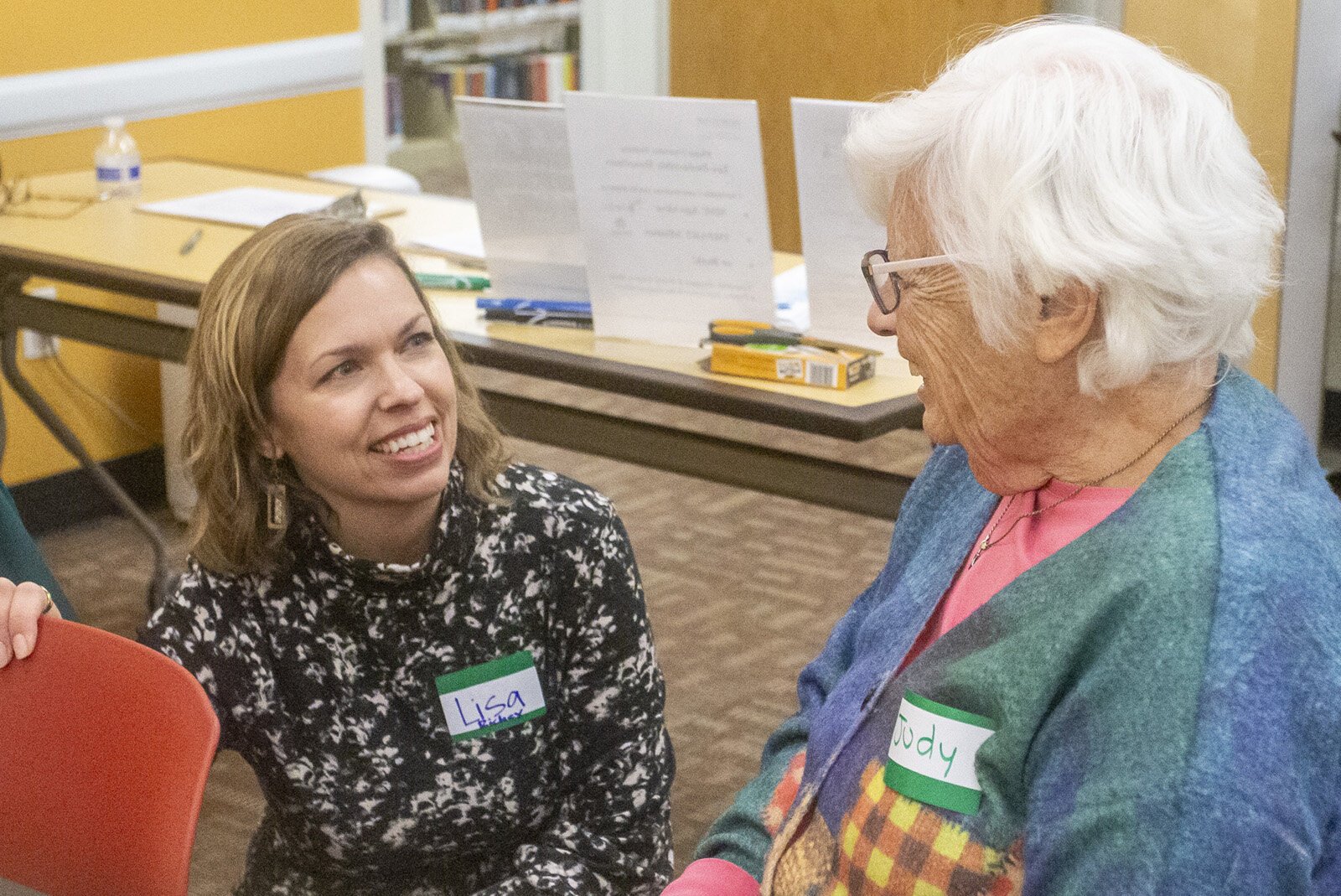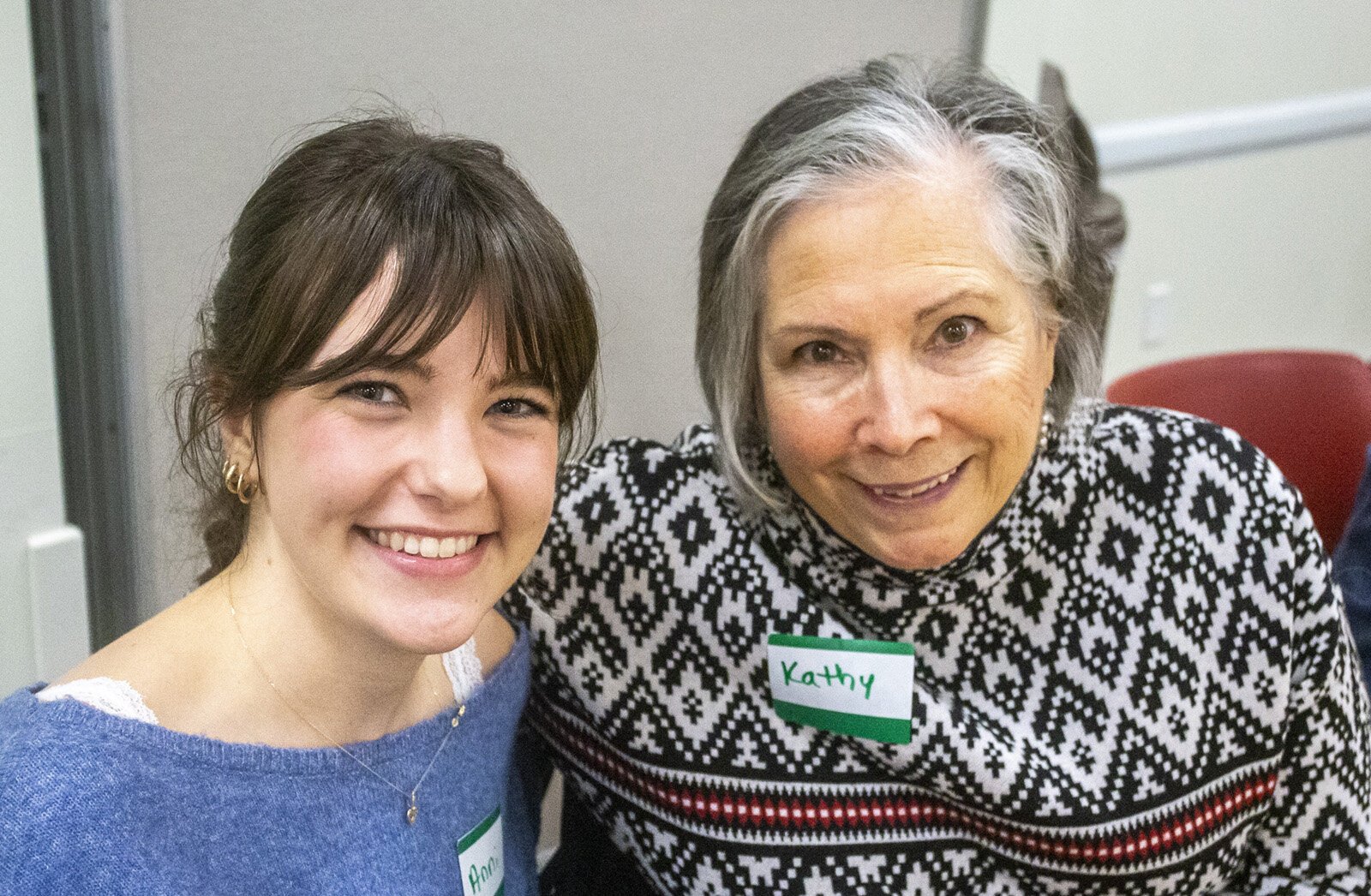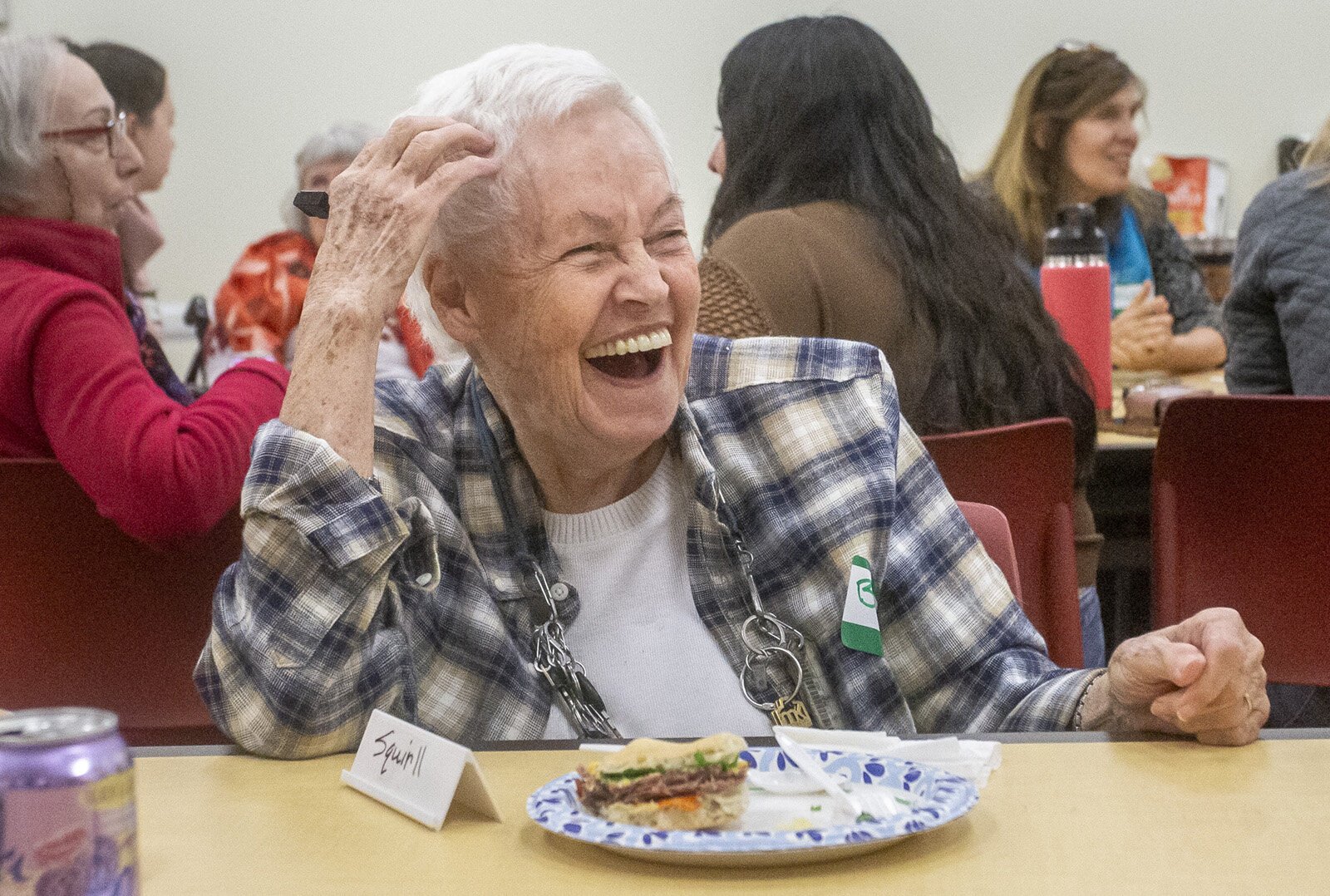
This article is part of State of healtha series on how Michigan communities are emerging to address health issues. It is made possible by funding from the Michigan Health Endowment Fund.
As Michigan prepares rapid growth in the number of older adultsThree Michigan universities have joined a global movement to make higher education institutions more “age-friendly.”
Wayne State University (WSU), Eastern Michigan University (EMU), and Michigan State University (MSU) have joined nearly 80 American universities in becoming members of the Age-friendly university global network. The network emerged from the work of Dublin City Universitywhere a working group developed Ten principles of an age-friendly university in 2012 as an addition to the existing one World Health Organization Age-Friendly Cities Program. The principles support positive aging and the lives of older adults through education programs, research agendas, curriculum development, online education, health and wellness activities, and arts, culture, and community engagement opportunities.
Arizona State University and the University of Strathclyde, Glasgow soon joined Dublin City University to form the Age-Friendly University Global Network. Universities that demonstrate activities or plans that support at least four of the ten principles can join the network for free and receive age-friendly university status for five years.

 Dr. Thomas JankowskiDr. Thomas Jankowski.
Dr. Thomas JankowskiDr. Thomas Jankowski.
“Clearly we had an interest in being age-friendly here at the (WSU) Institute of Gerontology because that’s what we do. But we were able to very easily convince upper levels of government that the entire university should become age-friendly,” said Dr. Thomas B. Jankowski, interim director of the WSU Institute of Gerontology. Older adults are growing while the number of people in the traditional college age range, 18 to 22, is beginning a long decline – and that group will continue to shrink in the coming years.”
A university-wide steering committee is working to make WSU more accessible and supportive for older students. A 75% discount on tuition fees for those over 60 makes going back to school more affordable. Within the advising department, the Adult Learner Success Team is making more support resources available for older students. Instructional departments are considering more evening classes and flexible requirements to make programs more accessible to older students. And the Warrior Way Back program focuses on former students who dropped out before graduating.
“We have a lot of people who visited Wayne for a few years, then stopped and never came back. Many of those people couldn’t come back because of unpaid tuition or fees, fines or charges that they couldn’t afford to pay and because of that, they can’t enroll until they pay,” Jankowski says. ‘The university will forgive a certain amount of debt, a limited amount. They will forgive that so you can be readmitted to Wayne and finish your studies. I think that’s great.’
Other age-friendly efforts include flexible programs and transportation options for non-traditional students. Jankowski says WSU already has a higher percentage of non-traditional students — students over the age of 25 — than most other universities.
“People tend to stay in the workforce a little longer, and we should encourage that,” Jankowski says. “So helping prepare a better-educated workforce will necessarily include older people. And there’s a tremendous amount of personal growth that comes from expanding your mental horizons, learning about the way other people live, how things work, and how the world is organized. An older student with the right personality can train many of his younger peers. They bring a wealth of experience and perspective that younger people don’t have.
EMU: breaking age discrimination
With non-traditional students making up 30% of its student body, EMU became the first university in Michigan to receive Age-Friendly University approval in 2018. As part of its work to meet the unique needs of non-traditional students, EMU has hosted workshops that help faculty integrate age-friendly content into existing courses and programs such as those introduced Disrupts aginga multi-year global initiative developed by AARP change misconceptions about aging.
“It specifically looks at the stereotypes of aging,” says Dr. Cassandra Barragan, Disrupt Aging facilitator and assistant professor in EMU’s Aging Studies Program. “It’s a fun program, and we always have a really good turnout. I think the most interesting part is a part about caregiving. A lot of students don’t consider themselves caregivers, but they are. And there’s a part about Ageism also sometimes applies to younger students who are not considered capable.”
Barragan says this last point builds one of the best bridges for intergenerational conversations.
“When younger people say, ‘I’ve been left out because I’m too young,’ and someone else says, ‘I’ve been left out because I’m considered too old,’ they can have these really wonderful things, dynamic conversations ,” she says. “Ageism is the only ‘ism’ that is so ubiquitous in our society, in every place.”
Barragan’s goal is to distribute age-friendly content throughout the university so that all students consider the life continuum within the context of their major. The teacher workshops on working with older students and nontraditional students help teachers understand that nontraditional students typically have different obligations than younger students straight out of high school.
“There will be someone in their class who has a family, a job, kids and all these other commitments,” Barragan says.
MSU: AgeAlive
MSU was designated an age-friendly university in 2019. The age-friendly work revolved around both research and outreach to older adults. Within the MSU College of Osteopathic Medicinethe AgeAlive program is developing an aging hub that connects aging research and education with community outreach and intergenerational activities. For example, the Generations Connect program matches MSU students with older adults in the community. An international student assigned to an elder before the COVID-19 pandemic maintained the relationship virtually from India during the pandemic and recently celebrated the elder’s 100th birthday with him in person.

 Roxanne FrithA meeting for Michigan State University’s Generations Connect program, which matches MSU students with older adults in the community, at the East Lansing Public Library.
Roxanne FrithA meeting for Michigan State University’s Generations Connect program, which matches MSU students with older adults in the community, at the East Lansing Public Library.
MSU’s Arts Within Reach program gives older adults the opportunity to enjoy arts and cultural events. Another program, Town and Gown, invites older adults in the community to hear MSU faculty speak in person on a variety of topics The People’s Church near campus or via Zoom.
“They talked about the erosion of the sand dunes of Lake Michigan, about politics, about music,” said Lori Strom, a retired MSU and AgeAlive consultant. “You might have fifty people who can ask the professor questions and have a nice dialogue.”

 Roxanne FrithA meeting for Michigan State University’s Generations Connect program, which matches MSU students with older adults in the community, at the East Lansing Public Library.
Roxanne FrithA meeting for Michigan State University’s Generations Connect program, which matches MSU students with older adults in the community, at the East Lansing Public Library.
AgeAlive also works with the MSU extension and local senior centers to host wellness activities and technology training. And it creates connections among MSU researchers addressing facets of aging across disciplines.
“Research is important,” says Strom. “We have identified the researchers on campus who may be in the social sciences looking at relationships and caregiving, in the medical field looking at dementia and brain health, in engineering looking at assistive devices, or in urban planning looking at how housing, transportation and green space impact an older person. There are many places with really important research on campus. By bringing them together, we create this network.’
In line with the Age-Friendly University Global Network’s goal “to shape how we live and work by expanding educational opportunities across the lifespan,” WSU, EMU and MSU have each found their own niche for promoting age-friendly initiatives on their campuses. and within their communities.

 Roxanne FrithA meeting for Michigan State University’s Generations Connect program, which matches MSU students with older adults in the community, at the East Lansing Public Library.
Roxanne FrithA meeting for Michigan State University’s Generations Connect program, which matches MSU students with older adults in the community, at the East Lansing Public Library.
“It’s not something that happens by checking a box. It has to become part of the culture,” says Barragan. “There is a lot of research that supports that the younger you are exposed to working with older adults or around older adults, the less aged you are as an adult.”
“When we think of diversity, we often think of race, gender or religion,” Jankowski says. “Diversity is a source of strength, and age diversity is just as important as other forms of diversity.”
Estelle Slootmaker spends most working days as a journalist and book editor. She also writes poetry and will publish a new children’s book, “Places Where the Sun Don’t Shine.” You can contact her at (email protected) or www.constellations.biz.
Generations Connect program photos by Roxanne Frith. Thomas Jankowski photo courtesy of Thomas Jankowski.
Leave a Reply